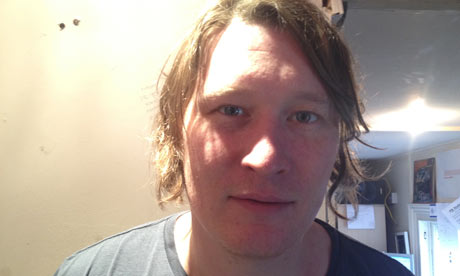"What is it that transforms an area's local musical landscape into a credible national scene?" asks Live UK journalist Allan Glen, in his post on the Guardian Northerner which has triggered passionate debate.
His answer seems to place the credit squarely at the feet of Sunderland City Council's 2008 Music City initiative, an 80-page document outlining plans to build upon the foundations laid by the likes of David and Peter Brewis, The Futureheads and Dave Harper during the late 90's and mid 00's when the Sunderland music scene was at its creative peak.
Sunderland City Cllr John Kelly is quoted in the article as saying:
The development of major concerts at the Stadium of Light was a breakthrough in promoters recognising Sunderland as a city to host national and international artists.
Now that's all well and good for the city's economy and the Stadium of Light's reputation as a live music venue, but for someone who is widely involved in Sunderland's music community today, it's difficult to see what positive effects have come from this initiative for the young, emerging musicians and promoters who are the beating heart of the real Sunderland music scene.
Don't get me wrong, I thoroughly enjoyed reading David Brewis' refreshing riposte on the Northerner to Glen's article; he provides an eloquent defence of the bustling, lucid, yet dysfunctional music scene that he helped to create, and ultimately restored credit where it is due. However, in the present day, the face of Sunderland's music scene has changed beyond compare; Boyeater and James McMahon have long since departed for more cosmopolitan climes, Hoth and This Ain't Vegas are no more, and Field Music and The Futureheads have all but flown the nest.
Allan Glen hasn't hit the mark with his assessment of our 'infrastructure', while David Brewis' article fondly remembers a snapshot of Sunderland music history that has paved the way for dozens of young bands since. But the world outside of Sunderland is still no closer to understanding the dynamics of our music scene in 2012.
I set out in search of answers from the new pioneers of Sunderland music: the artists, the promoters and the people providing the support that our aspiring musicians so desperately need.
Briefly mentioned in Glen's article is one of Sunderland's most important cultural and musical institutions. The Bunker's managing director, Kenny Sanger, has worked tirelessly over the last decade on a shoestring budget to provide support and a safe haven for budding musicians to hone their craft against a backdrop of almost constant economic decline and government funding cuts in the arts. The Bunker houses one of the only recording studios in the city, Room3recordings, as well as practice rooms used at some point by everyone from Field Music and The Futureheads, to the new generation of Sunderland musicians, such as post-punk four-piece Spoken Words. Their drummer, Adam McCann comments:
Kenny and The Bunker have helped us out a lot since we started. There aren't many places to practice in Sunderland, and The Bunker offer really good rates. The staff are always on hand to offer support and we never hesitate to get in touch with them.
As well as the support of The Bunker staff, the young musicians of Sunderland rely on their strong bonds with local promoters, who are willing to put their hand in their own pocket and take a hit if the show doesn't work out. Few work harder for the local music scene than Alex Burgess of Lone Wolf Promotions. I asked Alex about the extent to which Sunderland council has assisted her in promoting live music within the city. She says:
To be honest, the first time I was made aware of the Music City initiative was when I read the Northerner article. For every gig I've organised, I've done all of the groundwork myself, including getting in touch with venues and bands directly, and then working closely with them from initial planning, promotion and marketing, right through to the event on the night itself with no assistance from the Council, or any other organisation.
This certainly seems at odds with the glowing appraisal of the Music City initiative laid out by Sunderland councillors like John Kelly.
And what about the bands Alex works with? Often comprised of job-seekers and students, they don't have recording contracts or European tours lined up. So where do they fit into the plans that Sunderland's councillors are so proud of?
"I don't want to point any fingers or chuck blame around really. I think it's totally about making interesting and diverse music - and I think the reason that there is a strong scene here now is because there is a similar vein running through everyone's music, yet everyone's completely distinct," says 22-year-old Jamie Gilling, singer and guitarist of Sunderland folk outfit, Lilliput. Jamie firmly believes that the strength of the city's music scene lies within the artist's own hard-work, creativity and determination to succeed:
I mean Morris Ford [local songwriter and producer] is recording a few people now and then, working under the name Bedroom Records, and all of our stuff started out with a laptop and one microphone. If the music's good then people will come and watch, and the music's great at the minute!
It's marvellous to hear that the same backs to the wall bravado championed by the Brewis' et al, is instilled in today's crop of local musicians as Jamie goes on:
I don't want a 'hand out' from anyone. I want us to do the hard work ourselves. I think if anything good has come from Glen's article, it's sparked a debate about where are now, where we've come from and where can we go next. I guess it's always good to reassess.
So, if it's not Field Music, nostalgia, Live Nation, our 'jewel in the crown', The Stadium of Light, or Sunderland City Council that keeps the music scene burning as brightly now as it did in 2005, who exactly is it keeping the sound of Sunderland alive? Ben Wall, lead promoter at Sunderland's Independent [Live], gives his definitive answer:
The scene is the product of the people who are active in the area where the scene exists. Once bands 'make it' they become removed from the scene, removed by their agents and their management. They go on tour and they don't really need the local scene any more. If every venue in Sunderland was to shut, or every promoter to get real job, the scene wouldn't die, it would move to other rooms and promoters. However, if every band who play gigs in Sunderland were to suddenly stop playing, bye, bye music scene.
There you have it, the city council can fill their pockets with Take That ticket money and beat their drum all they like about the "transformation of live music in the city", but without young artists at grassroots level like Lilliput, Spoken Words, Chased By Wolves, The Lake Poets and Natasha Haws, the 'scene' as we know it would cease to exist.
Dan Carson is a music promoter from Sunderland who also co-edits the local music blog, The Abacus Post.









